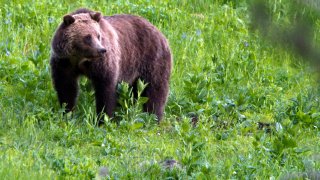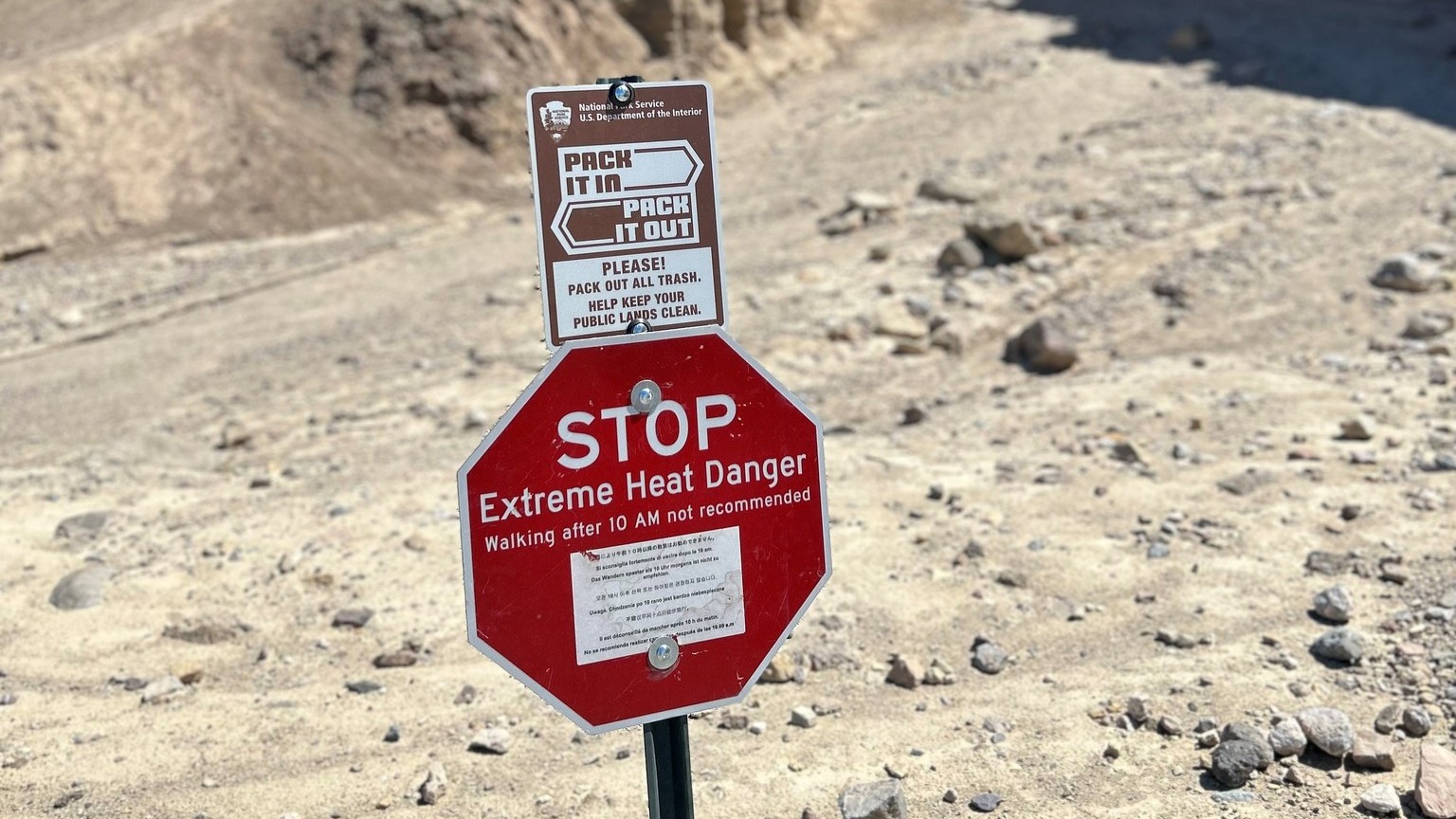
Wildlife workers put out bear traps for a third night Monday as they try to capture a grizzly bear that killed a woman who was traveling alone on a forest trail near Yellowstone National Park.
Amie Adamson, 48, Derby, Kansas, died in Saturday's fatal mauling near the Montana-Idaho border, the Gallatin County Coroner's Office said. The victim was a marathon runner, and officials said she was likely running or walking at the time of the attack.
Officials ruled out a rare predatory attack, which suggests Adamson instead died following a chance bear encounter as she traveled by herself in a wooded area frequented by grizzly and black bears.
She was killed a few hundred yards (meters) from a trailhead and a private campground and RV park, said Morgan Jacobsen with Montana Fish, Wildlife and Parks. The bear was travelling with one or more cubs, and there were no indications that it tried to eat the victim.
Get top local stories in Connecticut delivered to you every morning. >Sign up for NBC Connecticut's News Headlines newsletter.
Authorities have not decided whether they would kill the adult bear if it’s captured or whether they would relocate it, Jacobsen said.
National Parks
Adamson is a former English teacher who left the classroom in 2015 to backpack across much of the U.S. and later wrote a book, “Walking Out,” about her career and experiences.
The victim's mother described her as a hiker, marathon runner and “just a beautiful free spirit." KWCH-TV in Wichita reported.
“She lived for experiences,” Janet Adamson said, adding that her daughter did not care about material possessions and died “doing what she loved."
A hiker found her body around 8 a.m. Saturday. The cause of death was excessive blood loss caused by a bear mauling, the coroner’s office said.
Adamson was wearing running shoes and did not have bear spray, a deterrent that wildlife experts recommend people carry in areas frequented by bears, Jacobsen said.
She had been working nearby and often ran or walked on the trail in the early morning, according to officials and local residents.
“This person was likely out for a morning jog along the trail, and that's when this happened,” said Jacobsen.
Tracks of a grizzly bear and at least one cub were found at the scene of the attack, which occurred near the Buttermilk Trailhead 8 miles (13 kilometers) west of West Yellowstone, a busy summer tourist town and gateway to the national park.
The trail is used by hikers, horseback riders and people in off-road vehicles.
Rangers issued an emergency closure for areas of the Custer Gallatin National Forest. It did not include Yellowstone National Park.
Local resident Bill Youngwirth said people in the area were aware of the mauling and the forest closure, but they weren't panicked over the attack because the bear could have struck out defensively after being surprised when the victim came around a corner.
The attack happened about a mile (1.6 kilometers) from several vacation homes that Youngwirth rents adjacent to the forest.
“I tell everybody, ‘Better take bear spray and know how to use it,’" he said. “And the big thing is, don't go alone."
A trail camera captured an image of a grizzly bear with two cubs in the area on Saturday night. There have been no sightings since, Jacobsen said. Traps set for the bears on Saturday and Sunday nights came up empty, and attempts to locate the bears from an aircraft were unsuccessful.
As time goes by, he added, trapping becomes less effective as chances increase of catching a bear that wasn’t involved in the attack.
Laura Skinner, who co-owns West Yellowstone Rodeo and Creek Side Trail Rides, said the attack did not interrupt its horseback rides on private property or its nightly rodeos.
“We have bears all the time. The only precaution we’re taking is we’re checking trails. We send a rider out first to check to make sure there’s nothing there,” she said.
“I’m pretty sure with all the activity with them tracking it and trying to hunt it down, it’s probably nowhere near here,” she added.
Grizzly bear populations in the northern U.S. Rocky Mountains grew significantly over the past several and the animals in recent years have been showing up in places they hadn't been seen for generations. Since 2010, grizzlies in and around Yellowstone have killed at least nine people. Attacks remain relatively rare in the region, which draws several million tourists each summer.
A backcountry guide was killed near West Yellowstone two years ago when he was mauled by a large grizzly bear that wildlife officials said was probably defending a nearby moose carcass. And a hiker was killed north of Yellowstone park last year in a suspected grizzly encounter in a remote area of the Absaroka Mountains south of Livingston, Montana.
Encounters with humans can prove deadly for bears, too: A five-year-old female grizzly in Glacier National Park was euthanized last week after officials said it got used to eating food from campgrounds and was becoming increasingly aggressive.
Grizzlies are protected under federal law outside of Alaska. Elected officials in the Yellowstone region are pushing to lift protections and allow grizzly hunting.
State officials last week warned visitors and residents of grizzly bear sightings throughout the state, “particularly in areas between the Northern Continental Divide and the Greater Yellowstone ecosystems.”
They implored those camping and visiting parks to carry bear spray, store their food while outside and tend to their garbage.



